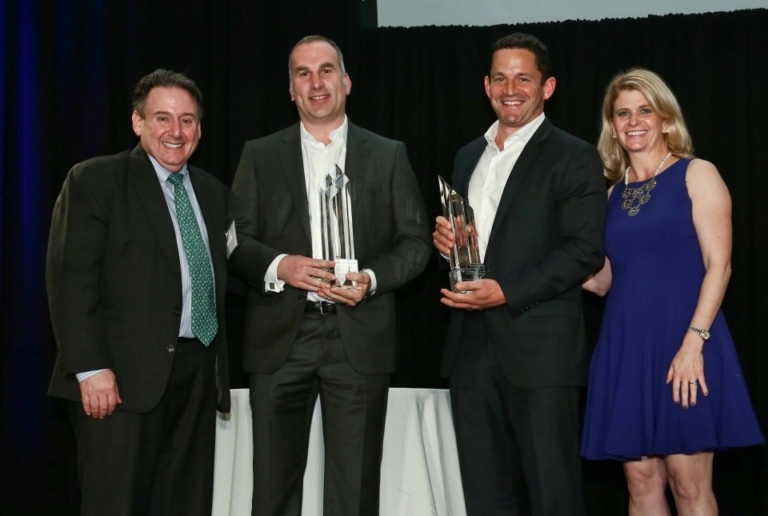
Entrepreneurs honored at Tulane University Business School gala
Even though the Tulane University Council of Entrepreneurs Gala had a new name, the Albert Lepage Center for Entrepreneurship and Innovation Gala, the focus was still the same: honoring those who have pursued and promoted new, inventive ideas, processes and businesses.
The awards gala on April 15 at the Audubon Tea Room started with a cocktail hour, followed by the dinner and awards program. Among those in the audience were Tulane University President Michael Fitts; Freeman School of Business Dean Ira Solomon with Susan Solomon (also the event’s co-hosts); Freeman School of Business Associate Dean John Clarke; Freeman School of Business Director of Entrepreneurship and Innovation Education Sherif Ebrahim, Freeman School of Business Director of Outreach and Community relations Stephanie Kleehammer, as well as other Tulane staff, faculty, alumni, and students.
Tulane alumni Chris Papamichael (BSM ’96) and Matt Schwartz (BSM ‘ 99), The Domain Companies, received the Tulane Distinguished Entrepreneurs Award. The Domain Companies is a real-estate investment and development firm specializing in sustainable mixed-use development. currently in New York and Louisiana, including the Paramount, the Beacon and the Standard at South Market, the Crescent Club, the Preserve, the Meridian, and Gold Seal Lofts, as well as the Ace Hotel in New Orleans. Caroline Roemer, executive director of the Louisiana Association of Public Charter Schools, received the Tulane Outstanding Social Entrepreneur Award. The association helps support and serves as a voice for the Louisiana charter school movement.
Also part of the night’s program was the announcement of the winners of the Tulane Business Model Competition (now in its 16th year): First place: Sensifoam, Tulane University, $25,000; Second place: Sensytec, University of Houston, $10,000; and Third place: BioAesthetics, Tulane University, $2,500. The competition took place earlier in the day; the money is to fund these student ventures. Sensifoam is a device “that adheres to patients during operations and transmits data to alert surgeons to the possibility of pressure ulcers, more commonly known as bed sores”; Sensytec “developed a smart-cement technology enabling users to retrieve and analyze critical date on cement and concrete”; and BioAesthetics uses “regenerative medicine technology to reconstruct the nipple and areola complex of patients who have undergone mastectomies,” according to Tulane University press release.